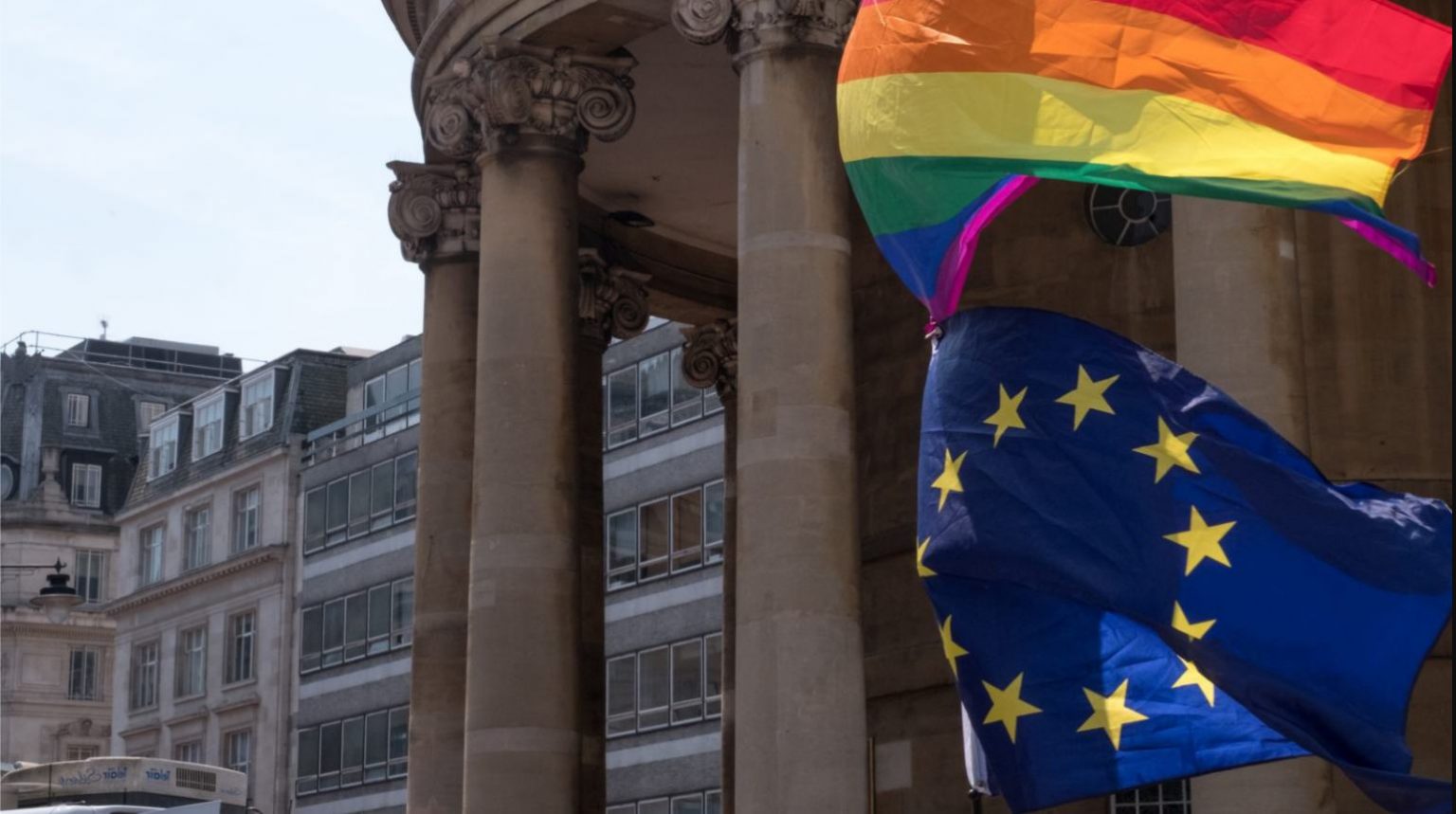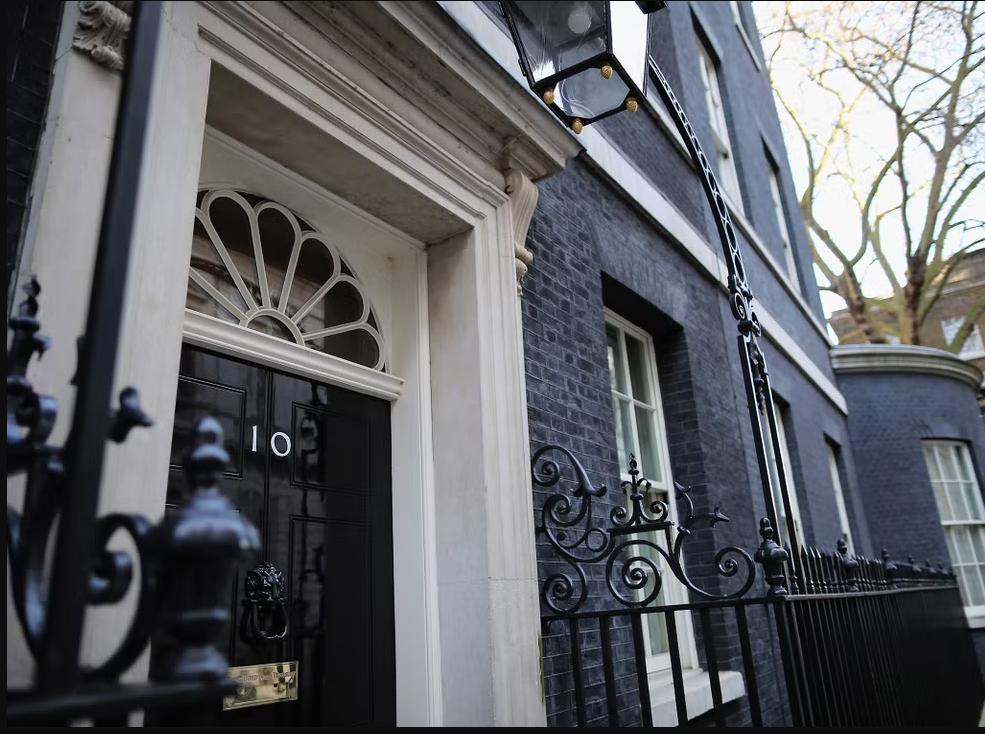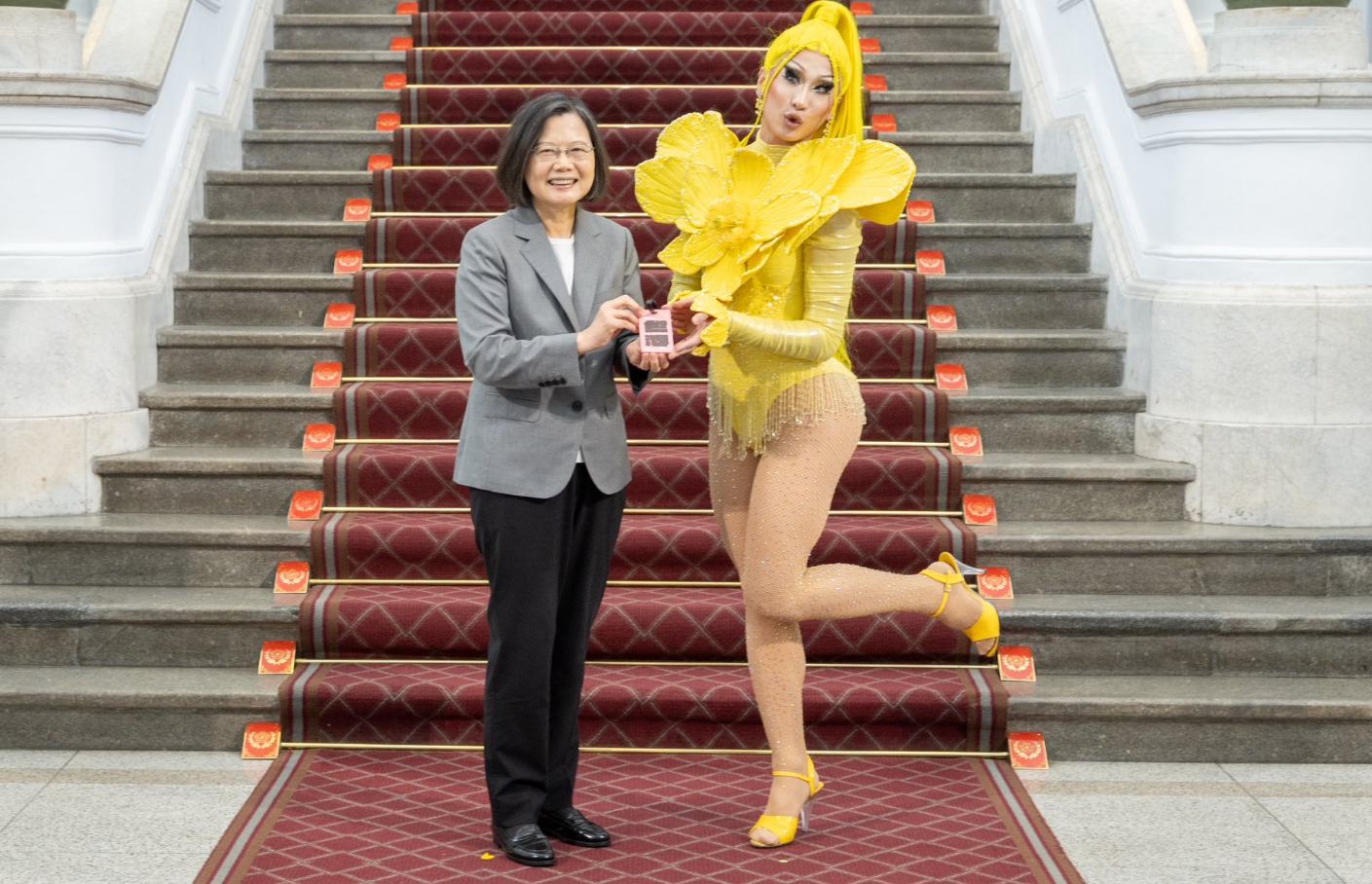World
Out in the World: LGBTQ news from Europe and Asia
Liechtenstein lawmakers approved a marriage equality bill on May 15

ILGA-Europe

ILGA-Europe released its annual Rainbow Europe Map module ranking countries across the continent on the status of LGBTQ rights, revealing that many countries are falling behind as political pressure from far-right politicians grows.
The report was released May 15, just a day after the EU’s Fundamental Rights Agency released its own report detailing a shocking growth in violence experienced by LGBTQ people across member states over the past year.
“Across Europe, LGBTI people are being targeted by hate speech and violence and their human rights are being actively undermined, yet we still see too many countries across the region stalling in moving legal protection forward and not renewing their commitments through national strategies and action plans,” says ILGA-Europe Advocacy Director Katrin Hugendubel.
“This non-action is dangerous, as without proper legislation in place to protect minorities, including LGBTI people, it will be much too easy for newly elected governments to quickly undermine human rights and democracy.”
Once again, Malta held the lead in the country rankings, as it has for the past nine years, scoring 88 percent across ILGA-Europe’s categories of equality and nondiscrimination law, family recognition, hate crime and hate speech laws, legal gender recognition, intersex bodily integrity, civil society space, and asylum policies.
Iceland jumped to second place with 83 percent after passing new laws banning conversion therapy and facilitating legal gender recognition. Belgium reached third place with 78 percent after banning conversion therapy.
At the other end of the spectrum, Russia (2 percent), Azerbaijan (2 percent), and Turkey (5 percent) hold the bottom rankings amid ongoing crackdowns on LGBTQ rights and expression in all three countries. Last year, Russia banned “the LGBT movement” as an “extremist organization.”
Several countries jumped up the rankings in this year’s report, including Greece and Estonia, which both legalized same-sex marriage. Liechtenstein collected points for extending adoption rights to same-sex couples, although it did not collect points for legalizing same-sex marriage, which happened the day after the report was released.
Germany, Bulgaria, Iceland, and Slovenia all collected points for passing legislation on hate crimes and hate speech, while Belgium, Cyprus, Iceland, Norway, and Portugal all collected points for banning conversion therapy.
But the changes haven’t all been positive. Several countries tumbled down the rankings as progress stalled on LGBTQ rights. Montenegro, Finland, Spain, Sweden, and Slovenia all lost points because their governments failed to renew action plans to promote LGBTQ rights. The report also noted the looming threat of right-wing governments across Europe, including in Italy where the national government has restricted the recognition of same-sex parents, and in several countries which are eying restrictions on legal gender recognition and trans health care, including France, UK, Slovakia, and Croatia.
The UK once occupied the top spot on ILGA-Europe’s rankings, but has fallen to 15th place as other countries press ahead on LGBTQ rights while the UK’s Conservative government has increasingly come under the sway of an anti-transgender moral panic.
LIECHTENSTEIN

The Alpine microstate Liechtenstein saw its parliament give final approval to legalizing same-sex marriage in a near-unanimous vote on May 15.
By a vote of 24-1, parliament approved a series of bills that would amend marriage law to allow same-sex couples to marry in the country of about 30,000 people nestled between Switzerland and Austria. The only “no” vote came from an MP from the right-wing populist Democrats for Liechtenstein party.
The new law will come into effect on Jan 1, 2025, as long as it is not vetoed by the prince or challenged in a citizen-initiated referendum. The prince is not expected to veto the bill, as he has previously expressed support for same-sex marriage.
Under the new law, no new civil unions will be registered, although same-sex couples already in same-sex unions will be allowed to continue their unions.
Liechtenstein’s parliament had already amended the law to allow same-sex couples to adopt last year, following an order from the Constitutional Court.
The tiny, conservative-leaning and mostly Catholic country has been slow to adopt LGBTQ rights. It lacks any legal protections from employment discrimination or anti-LGBTQ hate crimes.
ILGA-Europe ranked Liechtenstein 33rd out of 48 states in Europe, with a score of 28 percent on its latest Rainbow Europe Map. This decision on marriage will likely see it rise somewhat in the rankings next year.
The Catholic Church has previously strongly rejected same-sex marriage. Last year, the country’s archbishop, Wolfgang Haas had called same-sex marriage a “diabolical attack against the Creator’s will to salvation,” and cancelled a planned service for opening of Parliament in protest of the law. Haas has since retired.
The decision makes Liechtenstein the last German-speaking country to legalize same-sex marriage.
In a state posted to its Facebook group, the Liechtenstein LGBTQ advocacy group FLay thanked the lawmakers and other supporters who helped get same-sex marriage legalized in the country.
“We are looking forward to introducing marriage for all per 1 January 2025 and thank you to all who have fought for it,” the statement said.
Liechtenstein is the 22nd European country to introduce same-sex marriage, bringing the global total to 38 countries. A bill before the Thai Senate is expected to pass before the summer, which would make it the 39th.
GEORGIA

The government of the former Soviet republic of Georgia says it is close to finalizing a new law against so-called LGBTQ propaganda inspired by similar laws passed in Russia and Belarus in recent years, in what critics say is an attempt to maintain power by stoking divisions on a culturally sensitive issue.
The Georgian capital of Tbilisi has been rocked by protests for weeks as the ruling Georgian Dream party reintroduced a controversial “foreign agents” bill inspired by a similar Russian law, which requires any organization that receives funding from out of the country to register with the government as “organizations serving the interests of a foreign power.”
Critics say the bill is intended to silence and discredit media and civil society that is critical of the government.
May 17 saw intense protests marked by anti-government and pro-European demonstrators marking the International Day Against Homophobia, Biphobia, and Transphobia while anti-LGBTQ protesters, including Prime Minister Irakli Kobakhidze and church leaders took to the streets to mark the government’s competing “Family Purity Day,” Reuters reported.
The party had first introduced the foreign agents bill last year, but withdrew it after months of protests and condemnation from EU countries. The government reintroduced the bill this spring, with some observers suggesting it’s an attempt to tip this October’s national elections in their favor. For weeks, protesters have attempted to halt passage of the law, but parliament gave it final approval May 14. It was vetoed by President Salome Zurabishvili on Saturday, but the government has enough votes in parliament to override the veto.
The proposed anti-LGBTQ law would amend article 30 of the Georgian Constitution to include a host of regulations restricting LGBTQ rights. It would ban recognition of same-sex relationships, ban adoption by gay people or same-sex couples, ban medical interventions to facilitate gender change, restrict recognition of gender to that of biological sex, and ban advocacy for recognition of same-sex couples or trans people.
To pass, the bill would require at least a 3/4 vote of parliament (113 votes), or a 2/3 vote (100 votes) in each of two successive parliaments. The government currently controls 84 of the 150 seats in parliament, but likely believes it can pull enough votes from the opposition to pass the constitutional law.
Critics have noted that both laws put Georgia’s application to join the EU in jeopardy as they clearly attack the fundamental rights at the heart of the union. But while the EU has been sharply critical of the foreign agents law, its criticism of the anti-LGBTQ law has been far more muted.
Local activists say that the EU’s silence has been strategic, as any criticism would play into the hands of Georgian Dream, who claim that LGBTQ rights are a “pseudo-liberal ideology” advanced by a decadent West.
The timing of the bill is likely meant to further divide the opposition as protests mount against the foreign agents law. Georgian Dream has been sliding in the polls since it was returned to power in 2020, but still commands a plurality of support compared to the highly fractured opposition according to most polls.
Georgian Dream politicians have deep ties to Russia, and have increasingly sided with Russia in international and cultural disputes, including by refusing to impose sanction against Russia for the invasion of Ukraine. The support is ironic, considering that Russian forces invaded Georgia in 2008 and continues to support two unrecognized breakaway republics that resulted from that war.
On May 17, U.S. Rep. Joe Wilson (R-S.C.) of the House Foreign Affairs Committee announced that he plans to introduce legislation to sanction Georgian leaders over their assault on democracy and introduce incentives for the government to reverse course.
ILGA-Europe ranked Georgia 36th out of 48 countries, with a score of just 25 percent on its most recent Rainbow Europe Map this week.
UNITED KINGDOM

The Conservative government of the UK has directed schools in England to ban discussion of gender identity in schools and restrict sex education for children under age nine, in an update to statutory guidance issued to schools that is currently under review.
Although the guidance has not yet been released or put into effect, LGBTQ activists and government critics are already comparing the guidance to the notorious Thatcher-era Section 28, which banned discussion of homosexuality in all schools across the UK from 1988 until it was repealed in England and Wales in 2003 and in Scotland in 2000.
The UK has long been in the grip of an anti-trans moral panic, fostered by segments of the ruling Conservative Party that are hostile to trans people and influential British celebrities like “Harry Potter” creator JK Rowling who has long campaigned against trans people’s rights.
Last week, Prime Minister Rishi Sunak appeared on ITV’s daytime talk show “Loose Women,” where he complained that “gender ideology” was infiltrating UK schools.
“Children were being exposed to lots of different things,” Sunak said. “You know, we’ve got lots of people talking to kids, they were talking about [how] you can have 72 different gender identities.”
There is no evidence that children in UK schools are being taught that there are 72 different gender identities or are being taught to engage in inappropriate behavior.
London Mayor Sadiq Khan, who was recently reelected to a third term, blasted the government’s new policy as being harmful to the children the government claims to want to protect.
“We’ve just got to be a bit aware when we have these conversations that we’re conscious about the impact that this has on trans young people,” he said.
“Many of these people — young people — learn about these things through social media. You know, the proliferation of porn, and also the proliferation of misogynists like Andrew Tate. If we’re delaying proper, responsible teaching until later on, I worry about who’s going to be rebutting some of the nonsense on social media.”
Education Secretary Gillian Keegan tried to mollify critics by claiming that the new policy will not restrict discussion of adults who have undergone gender reassignment.
“Gender reassignment” is listed as protected characteristic under the 2010 Equality Act, but the act does not list “gender identity” or “gender expression” as protected characteristics.
“Let me be clear on gender ideology in schools,” Keegan said on BBC Radio 4’s “Today.” “The thing that we’re trying to stop is not gender reassignment. Gender reassignment is something that is a protected characteristic — that adults are allowed to reassign their gender, there’s a process that they go through for that. That is a protected characteristic, and that can be taught.
Gender identity and ideology is something different, and this is part of probably similar campaign groups that have been building this set of materials and this ideology,” she said.
Jo Morgan, the chief executive of Engendering Change, an organization that provides sex education workshops in schools, disputed the idea that schools are teaching children to be trans.
“They are concerned that schools are becoming breeding grounds for transgenderism. There’s no evidence to support that. What we are doing as educators is saying, this is in the news, in social media, it’s everywhere — let’s unpack it together and look at what sources of information you are being exposed to, let’s talk about how this relates to the Equality Act,” Morgan told the Guardian.
ILGA-Europe ranked the UK 15th out of 48 countries with a score of just 52 percent on its most recent Rainbow Europe report, citing a lack of legal protections for trans people and outdated procedures for legal gender recognition.
TAIWAN

Outgoing Taiwanese President Tsai Ing-Wen hosted “RuPaul’s Drag Race” winner Nymphia Wind at a ceremony at her presidential office May 15, in a sign of the growing acceptance of LGBTQ people in the Asian island nation.
The Taiwanese-American performer Nymphia Wind was crowned the winner of season 16 of “RuPaul’s Drag Race” in an episode that aired April 19, taking home the crown and scepter and a cash prize of $200,000. She is the first person of East Asian descent to win the long-running reality competition series. American drag artist Raja, who is of Dutch-Indonesian ancestry, was the first “Drag Race” winner of Asian descent after taking the crown in season three.
Tsai had been quick to offer her congratulations to Wind, posting a message on Instagram just days after her victory. Less than a month later, Wind was in her office, where she performed a trio of songs in full drag — Lady Gaga’s “Marry the Night,” Taiwanese singer Huang Fei’s “Chase, Chase, Chase,” and Jolin Tsai’s gender equality hit “Womxnly,” which she performed with a quintet of backup dancers in drag.
“I want to thank you for demonstrating your fearless beauty, standing up and breaking down barriers,” Tsai said to Wind after her performance, noting that her win “will bring courage to many young people in Taiwan, so they stay fearless and stay true to their hearts.”
Under Tsai’s leadership, Taiwan has become a bastion of liberal values, including progressive attitudes toward LGBTQ people. Among recent landmarks, Taiwan legalized same-sex marriage and adoption, and it banned conversion therapy, and the capital Taipei hosts East Asia’s largest Pride festival.
“Thank you for your contributions to this country, so that I could grow up to be like this today,” Wind told Tsai after her performance. “Thank you for your eight years of dedication, becoming our Taiwan mother.”
Tsai stepped down May 20. Her successor, Vice President Lai Ching-te, last year became the most senior government official to march in Taipei’s Pride parade.
NEW ZEALAND

Activists are calling for greater access to gender-affirming surgeries after the “New Zealand Medical Journal” published a report of a trans teenager who attempted a self-mastectomy at home and had to be treated at hospital.
The teenager, an 18-year-old high school student, had reportedly watched a “how to” video on YouTube and prepared instruments for the surgery himself. He went to the hospital hours into the surgery after he became concerned that he had damaged a nerve while attempting to remove his left breast.
Surgeons at the hospital then removed both breasts, and he was discharged a day later. The report notes that the boy reported higher confidence and self-esteem at a post-operation interview a month later. The hospital’s mental health team assessed that he did not have a psychiatric disorder and was not suicidal, but that he had attempted the surgery as an act of desperation.
“Due to the long wait times of referral in the public healthcare system, an inability to afford a private consultation and the significant psychological stress of having breasts at an upcoming pool party he planned to complete a bilateral (double) self-mastectomy at home,” wrote the report’s authors, Wellington Regional Hospital doctors Mairarangi Haimona, Sue Hui Ong, and Scott Diamond.
Gender-affirming surgeries are covered by New Zealand’s healthcare system, but wait times for surgeries can be lengthy – 10 years or longer for “bottom surgery” by the only doctor in the country who performs it.
Top surgery can be accessed in the parallel private system for around NZ $15,000 (approximately $9,200) and is generally not covered by private health insurance, putting it out of reach for many.
“Transgender people often need to self-advocate for care in the public health system, but with increasing demand and associated psychological and possible physical harm it’s crucial for public services to be more accessible to an under-served population,” the report’s authors concluded.
Self-surgery is an incredibly risky option for trans people — complications can range from scarring to infection to death. And the surgeries may not even work if the patient is taken to the hospital and patched up due to complications.
Te Ahi Wi-Hongi, executive director of the advocacy group Gender Minorities Aotearoa, urges any trans person considering home surgery to avoid it and “hang in there.”
“It might seem right now it’s completely hopeless, but we went from a 40-year waiting list for genital reconstruction surgery to 10 years or less when in 2019 the government made changes [announcing $3 million funding for genital gender-affirming surgery],” Wi-Hongi told the New Zealand Herald.
Mexico
Gay couple claims Puerto Vallarta wedding venue discriminated against them
Jeremy Alexander and Ryan Sheepwash wanted to get married at Sheraton hotel

A gay couple claims a hotel in a Mexican resort city that is popular with LGBTQ travelers discriminated against them when they tried to book their wedding.
Jeremy Alexander and Ryan Sheepwash in a TikTok video said they contacted the Sheraton Buganvilias Resort and Convention Center in Puerto Vallarta about holding their wedding at the property.
The couple, who live in Vernon, British Columbia, provided the Washington Blade with an invoice that Gabriela Espinoza, a wedding planner at the property, sent them on Jan. 17, 2025.
The invoice said 25 “deluxe ocean view room — all inclusive” rooms cost $970 a night. The total cost for the 25 rooms was $72,750.
Alexander in the TikTok video said it took Espinoza three months to send them the quote. The property, according to Alexander, requested a $36,000 deposit for half of the rooms.
“It’s not reasonable,” he said. “No one can afford that.”
Alexander said Espinoza told him and Sheepwash that the earliest they could have their wedding at the property was March 2027. Alexander in the TikTok video said he and Sheepwash asked a straight friend to “request a quote just to see apples to apples what it looks like.”
Ximena Esparza, another wedding planner at the property, on Feb. 7, 2025, sent the friend a quote for 25 rooms for a hypothetical wedding that was to have taken place from Feb. 19-26, 2026.
The quote for a “deluxe package” for 50 people was $8,500 and required a 20 percent deposit of $1,700.
“We just feel defeated,” said Sheepwash in the TikTok video. “It’s not fair because we love each other and we really want to get married, and we want to make it special and we want to make it perfect.”
@illuminaughtytriangle So disappointed that my fiancée and I got discriminated against by #Sheraton in #puertovallarta ♬ original sound – Jeremy Alexander
The Blade in 2019 reported the Sheraton Buganvilias Resort and Convention Center refused to allow Josh Rimer, a gay Canadian vlogger and television host who is also Mr. Gay Canada 2019, and his then-fiancé to hold their wedding at the property.
The invoice that Espinoza sent to Alexander and Sheepwash notes the hotel is “operated under license from Marriott International, Inc., or one of its affiliates.”
A spokesperson for Marriott, which is based in Bethesda, Md., and is Sheraton’s parent company, in response to Rimer’s allegation said the corporation reached out to him to express “our sincerest apologies for his experience.”
“We are troubled and greatly concerned about the experience reported by Mr. Rimer. Marriott has long been committed to providing an environment where all are welcome including our LGBTQ guests and their loved ones,” said the spokesperson. “In addition, we are looking further into the matter to better understand what happened and do what we can to prevent hurtful experiences like this from happening again.”
A Marriot spokesperson on Thursday told the Blade the company has “reached out to Mr. Sheepwash and Mr. Alexander to learn more about their experience and are working with the property to offer a solution.”
“The Sheraton Buganvilias has been active in the LGBTQ+ community in Puerto Vallarta for years, hosting LGBTQ+ weddings and groups and also supporting Pride events in Puerto Vallarta,” said the spokesperson. “Marriott remains steadfast in our commitment to ensure guests are treated with respect and understanding.”
Chile
Transgender woman sues Chilean national police
Isabella Panes alleges she suffered harassment, exclusion after becoming ‘carabinera’

Isabella Panes in 2022 was celebrated as a symbol of inclusion.
Wearing an olive green uniform and a shy smile, she appeared in the media and on social media as Chile’s first trans female “carabinera” or national police officer. The Carabineros promoted Panes as a sign of openness, but that story has become a dramatic case of institutional discrimination.
Panes today faces the Carabineros in court.
She has denounced a series of systematic acts of exclusion, harassment at work, and violation of fundamental rights that she and her defense team maintains pushed her into a mental health crisis that almost cost her her life.
“My hope is that tomorrow we will be able to live in a world of equality for all. Just that we understand that we are human beings and we have to make life a lot easier for each other,” Panes told the Washington Blade during an exclusive interview.
Panes, 29, grew up in Laja in the Biobío region.
She dreamed of becoming a “carabinera” since she was a child, despite the fact that she faced discrimination because of her gender identity. After years of effort, surgeries and a difficult transition, Panes enrolled in the Carabineros Academy in 2021.
Panes faced the challenge of making her medical processes compatible with the physical demands of training. Even so, she graduated with good marks, and was recognized as part of the new institutional image the Carabineros wanted to project after the 2021 social unrest tarnished their image.
This institutional support disappeared after the media campaign.
Panes alleges she was marginalized from operational duties and relegated to administrative tasks, despite her interest in and training to patrol the streets like any other officers.
“I joined the Carabineros to serve, not to be a marketing decoration,” she said. “I was offered to be part of the change, but only if I kept quiet and accepted the mistreatment.”
The accusations against the Carabineros are serious: Constant mockery by colleagues, dissemination of private information about her personal life, invasive questions about her body and sexual orientation. Panes’s legal representatives said this abuse took place within a context where the institution did not take effective measures to protect their client.
The Carabineros Social Security Administration, known by the Spanish acronym Dipreca, also refused to cover her transition-related medical procedures, arguing they were “aesthetic,” despite medical reports that indicated their importance for Panes’s mental health and well-being.
Panes in January attempted to kill herself by suicide. She managed to survive after calling Chile’s 4141 mental health care number for help.
“They were killing me slowly, from the inside,” said Panes.
Panes has brought her case to the Supreme Court after a lower court ruled in favor of Dipreca’s decision to not cover her medical treatments.
Her legal team in a lawsuit has also accused the Carabineros of employment and systematic discrimination. Panes is seeking damages and institutional reforms.
“The Carabineros used Isabella to clean up its public image, but when it came to guaranteeing real rights, they abandoned her,” said Javiera Zúñiga, spokesperson for the Movement for Homosexual Integration and Liberation, a Chilean advocacy group.
“It is not enough to show up at the Pride march,” she added. “True inclusion is demonstrated in deeds, in daily dealings, in respect for the dignity of all people.”
Panes’s case starkly exposes the limits of diversity policies when there is no deep institutional commitment to implement them.
“I am no longer afraid,” said Panes, ”What happened to me cannot happen again. Not for me, but for all those who come after me.”
Brazil
US lists transgender Brazilian congresswoman’s gender as ‘male’ on visa
Erika Hilton has represented São Paulo since 2022

A transgender Brazilian congresswoman says the U.S. issued her a visa that listed her gender as “male.”
Erika Hilton on Wednesday wrote on her Instagram page that she requested a visa that would have allowed her to travel to the U.S. in order to participate in the Brazil Conference at Harvard University and the Massachusetts Institute of Technology.
The conference took place earlier this month.
“I was classified as ‘male’ by the U.S. government when I went to get my visa,” wrote Hilton, who added a visa she received from the U.S. in 2023 listed her gender as “female.”
Hilton is a Black travesti and former sex worker from São Paulo who won a seat in the Brazilian Congress in 2022. The Washington Blade spoke with Hilton shortly after her election.
“It is a big responsibility … but I feel very honored,” said Hilton. “I very much like to be able to be a representative for my people, and the more than 250,000 people who voted for me have confidence in me,” she said after she spoke at a rally in support of now Brazilian President Luiz Inácio Lula da Silva in a São Paulo square. “This demonstrates that our work has the potential to have a gigantic reach; where we can advance efforts to end death, poverty, misery, genocide that we have.”
President Donald Trump in his inaugural speech announced the federal government’s “official policy” is “there are only two genders, male and female.” The Trump-Vance administration has also banned the State Department from issuing passports with “X” gender markers.
Germany and Denmark are among the countries that have issued travel advisories for trans and nonbinary people who plan to visit the U.S. These warnings come ahead of WorldPride, which is scheduled to take place in D.C. from May 17-June 8.
Hilton said she is “not surprised” the U.S. issued her a visa with a male gender marker.
“I’m also not surprised by the level of hatred and fixation these people have with trans people,” she said. “After all, the documents I presented are rectified, and I’m registered as a woman, even on my birth certificate.”
Hilton further accused the U.S. of “ignoring official documents from other sovereign nations, even from a diplomatic representative.”
“At the end of the day, I’m a Brazilian citizen, and my rights are guaranteed and my existence is respected by our own constitution, legislation, and jurisprudence,” she said.
Editor’s note: Duda Salabert, another transgender Brazilian congresswoman, also said the U.S. listed her gender as “male” on her American visa.
-

 El Salvador4 days ago
El Salvador4 days agoGay Venezuelan makeup artist remains in El Salvador mega prison
-

 State Department3 days ago
State Department3 days agoHIV/AIDS activists protest at State Department, demand full PEPFAR funding restoration
-

 Brazil3 days ago
Brazil3 days agoUS lists transgender Brazilian congresswoman’s gender as ‘male’ on visa
-

 District of Columbia4 days ago
District of Columbia4 days agoTwo charged with assaulting, robbing gay man at D.C. CVS store












